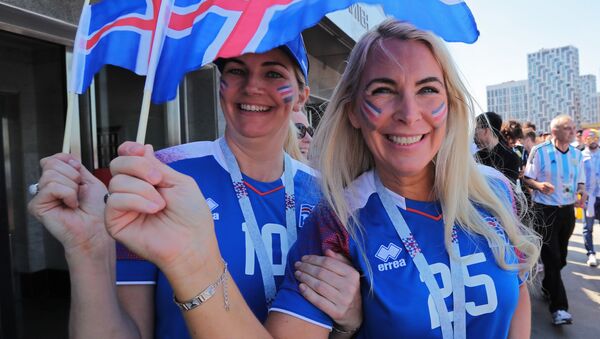Icelandic names will no longer be classified as “male” or “female” in the naming registry, which in effect allows anyone to take virtually any name. The law applies to both parents naming their children and to adults who want to officially change their names, Icelandic broadcaster RÚV reported.
Iceland's new Gender Autonomy Act marks a major change in the country's age-old naming tradition, which previously explicitly banned unisex names. Under the previous naming laws, which blankly stated “Girls shall be given female names and boys shall be given male names”, no name could be given to both men and women, with the minor exception where there was an existing precedent for this. If a person, therefore, were to take a name registered as the opposite gender, they would have to submit a petition to the Icelandic Naming Committee for approval.
For instance, last year, the Icelandic Naming Committee rejected a petition to allow a four-year-old girl to bear the name “Alex”, as it was only recognised as a boy's name. Subsequently, this decision was reversed, as examples of the name being used for girls as well had been produced.
The new Gender Autonomy Act will also allow gender neutral family names. Unlike most nations, traditional Icelandic surnames are in effect patronymic (or in rare cases matronymic). They are dereived from the name of the father by using suffixes -son (“son”) and -dóttir (“daughter”).
If an Icelander named Einar Jónsson were to have two children, they would be Einarsson or Einarsdóttir respectively. While the status quo has long been for children to be given gendered surnames, with the exception of immigrants, the Gender Autonomy Act provides for a third option, which doesn't carry any gender connotation, the genderless suffix -bur (“child”). However, this gender neutral option will only be available to Icelanders who are officially registered as neither male not female ("X").
Meanwhile, Registers Iceland is anticipating a high number of name change applications to be submitted once the law takes effect, as there are a number of people who have been specifically waiting for the law to allow them to do so. Processing time for name changes should be within three to five business days, director general Margrét Hauksdóttir said.
The decision has triggered polarising reactions. While many hailed the gender-neutral names as a token of Iceland's progressive mentality and open society, others saw it as bearer of dark news.
“It's the beginning of the end of the Icelandic language, taking into account that more and more children speak English even among themselves”, a Facebook user suggested.
“Crazy idea in the name of being the most progressive country”, another one mused.
“So now you can name your newborn son Brunhilde and your daughter Thor and declare them gender neutral right from the get go? They are just your “bur“ and you can impose your gender preferences or world views on them?” yet another one wrote on Facebook.
Iceland's population is about 360,000 people. Icelandic diasporas exist in fellow Nordic countries, as well as the US and Canada.




